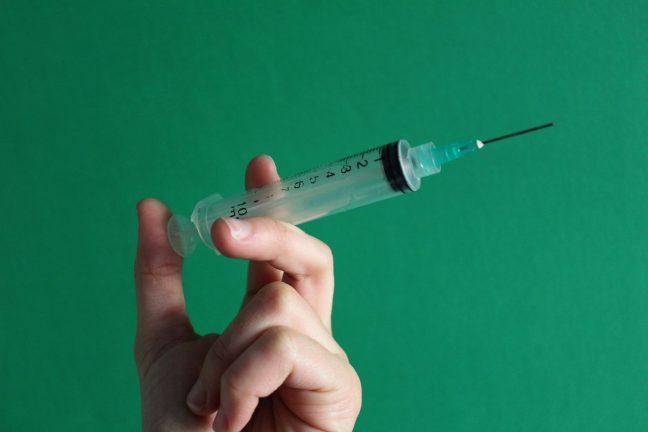Anne Isman (isman@wisc.edu) is a freshman studying economics.
One day in late September, I rushed out of Van Hise to East Campus Mall to secure my spot in line for University Health Services’ first flu shot satellite clinic of the season. I had never been so eager to get a flu shot, but after seeing my floormates fall one after the other to the cold spreading on my dorm floor that week, I could only imagine how fast the flu might move from room to room. I knew I had to get my flu shot as soon as possible, and after a short five-minute wait in line, I did.
But most college students across the U.S. are significantly less motivated to get their flu shots than I was. A 2017 national survey found while 70% of college students surveyed believe it is important to receive an annual influenza vaccine, only 46% of those respondents actually got one.
What’s even more alarming is vaccine rates on college campuses range between 8-39%, meaning nationally, most students go unvaccinated during flu season. This poses a risk to roommates, fellow classmates and faculty who may not have yet received their vaccine.
Considering you can catch the flu from someone simply by talking to them from six feet away, unvaccinated students are not only extremely vulnerable themselves, but they can also easily spread the sickness to their peers if they happen to contract it.
The state of Wisconsin has also shown low vaccination rates in the past. Wisconsin Public Radio announced only 40% of the state’s population received the flu vaccine last year, which was actually a record high. This year, just 16% of Wisconsin residents have gotten their flu shots so far, though flu season is rapidly approaching.
One of the main reasons college students do not get a flu shot is because they believe themselves to be “healthy enough” to not need one. Even so, getting the flu shot is as much about protecting others as it is about protecting yourself. In other words, herd immunity protects a community of individuals from an infectious disease or illness, like the flu, simply by the sheer number of people with immunity in that population.
It takes roughly two weeks to become immune to the flu after getting the shot, meaning that the earlier students receive their vaccination, the more effective herd immunity will be in preventing the spread of influenza to those who have not yet been vaccinated or cannot receive the flu shot for various medical reasons. Since flu season is starting early this year in Wisconsin, it’s advisable to get a flu shot soon.
While students may feel reluctant to get the flu vaccine due to the possibility of side effects, which are usually no worse than a low fever, they should rest assured significant side effects are extremely rare, and there are essentially no downsides to getting a flu shot.
It’s not worth the risk of contracting the flu simply to avoid getting the shot, especially when it is free to do so and easily accessible on campus. Taking the initiative to get your flu shot is a necessary step in starting an important routine of looking after yourself and your health.
Students can get vaccinated at UHS, located on the 6th floor of 333 East Campus Mall, Monday through Friday, 9 a.m. to 4 p.m.


